Reading comprehension Normal Kindergarten Addition & Subtraction Worksheets
8 filtered results
-
From - To
Enhance your kindergarteners' literacy and math skills with our engaging Reading Comprehension Normal Kindergarten Addition & Subtraction Worksheets! These carefully designed resources seamlessly integrate reading comprehension with foundational math concepts. Each worksheet features relatable scenarios and visuals that help students practice addition and subtraction while improving their understanding of key texts. Our activities encourage critical thinking, phonetic awareness, and basic math skills, making learning enjoyable and effective. Perfect for classroom and home use, these worksheets aim to build confidence in young learners while fostering a love for reading and mathematics. Discover the joy of learning through fun and interactive practice!


Enrichment -2 Step Word Problems Worksheet
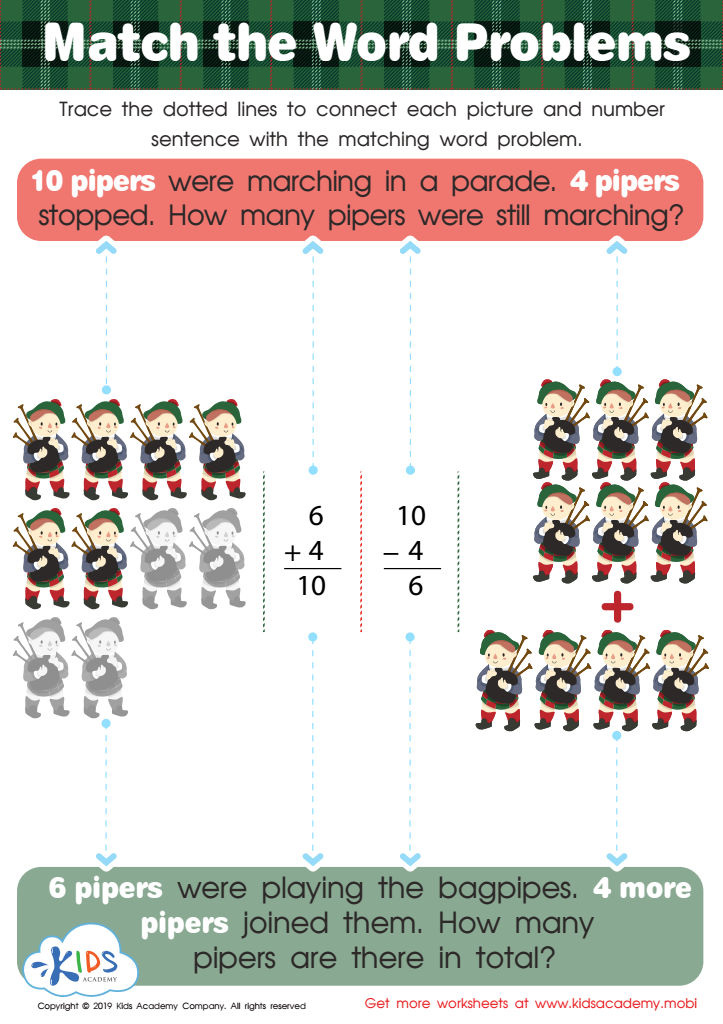

Match the Word Problems Worksheet
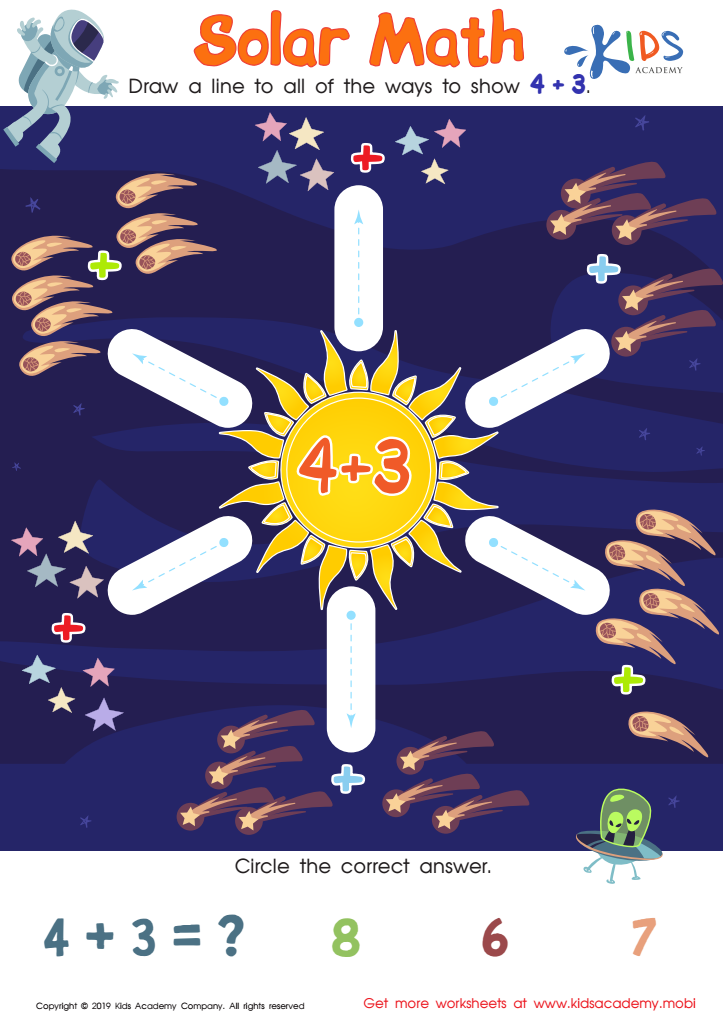

Solar Math Worksheet
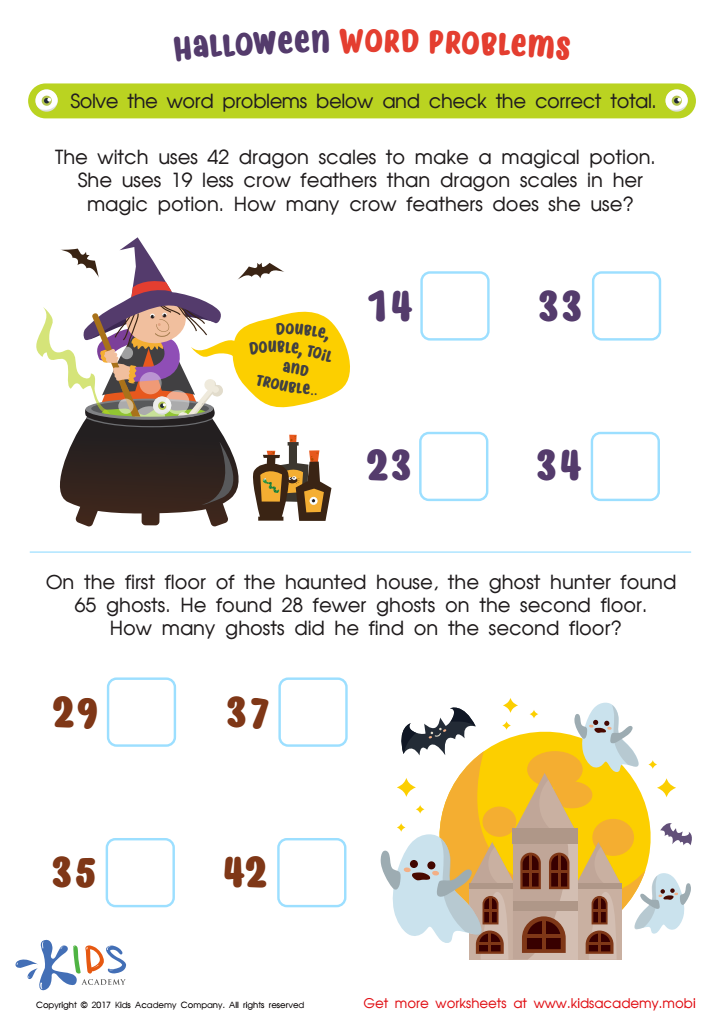

Halloween Word Problems Printable
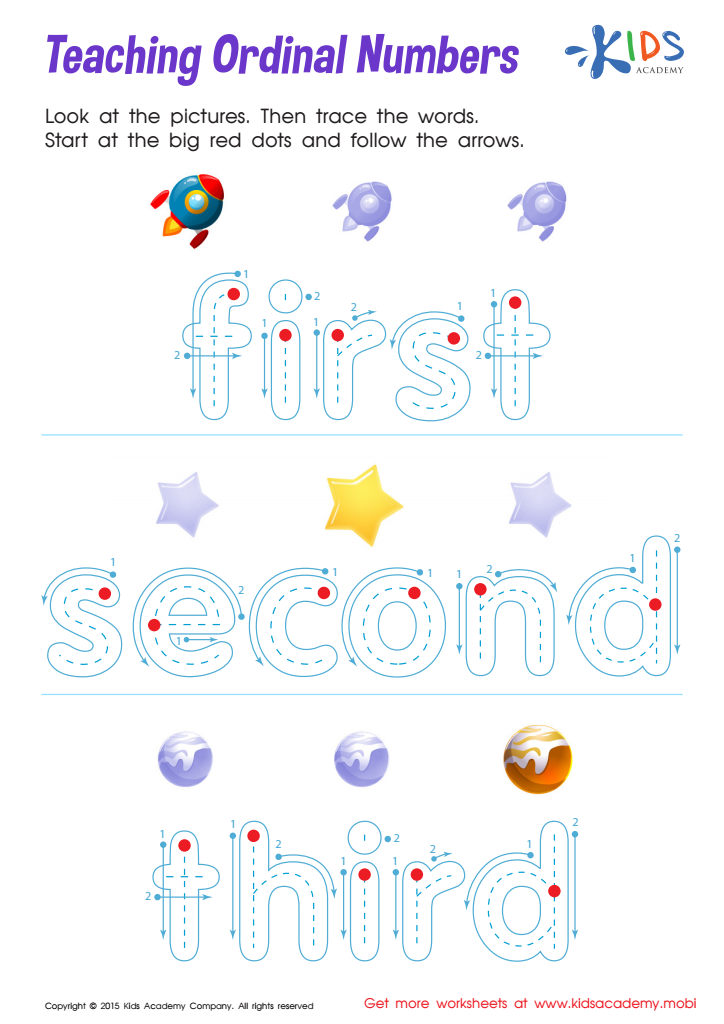

Ordinal Numbers: Teaching Ordinal Numbers Printable
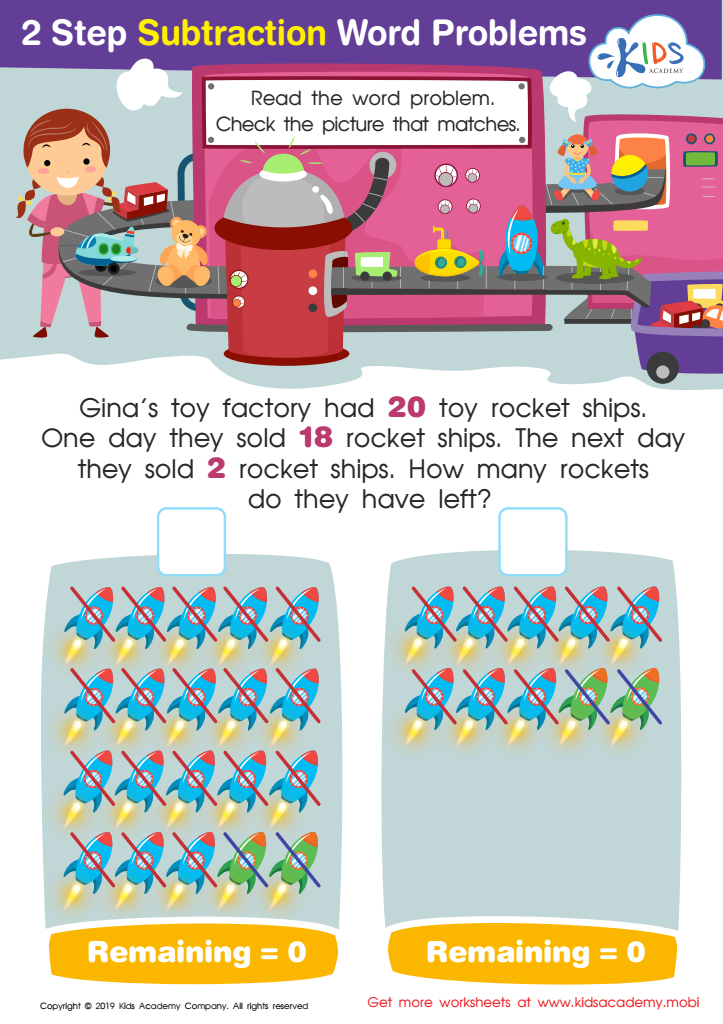

Step Subtraction Word Problems Worksheet


Word Problems: Assessment 2 Worksheet


Addition and Subtraction: Word Problems Worksheet
Reading comprehension and elementary math skills, such as addition and subtraction, are foundational pillars of a child's education, and it's vital for parents and teachers to prioritize these areas during the kindergarten years. First, reading comprehension fosters a child's ability to understand and interpret text, enhancing critical thinking and communication skills. Children who grasp these concepts early are better equipped to excel in later academic pursuits and are more likely to foster a love for reading that lasts a lifetime.
Similarly, understanding basic addition and subtraction lays the groundwork for more complex mathematical concepts. Kindergarten is an essential time for children to develop number sense, which is crucial for future success in math. By mastering these skills, children gain confidence and a positive attitude toward math, reducing anxiety that can arise in later grades.
Additionally, these skills intertwine; strong reading abilities can help children follow math instructions, solve word problems, and understand questions, creating a holistic approach to learning. Together, reading comprehension and basic math create a rich educational environment that nurtures well-rounded learners. Therefore, both parents and teachers should actively support and engage children in these critical areas, ensuring they build a strong foundation for lifelong learning.
 Assign to My Students
Assign to My Students















